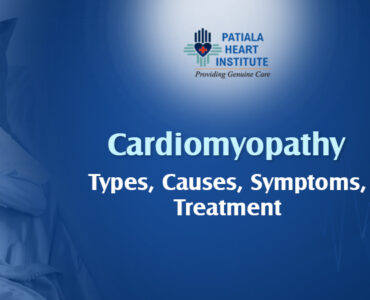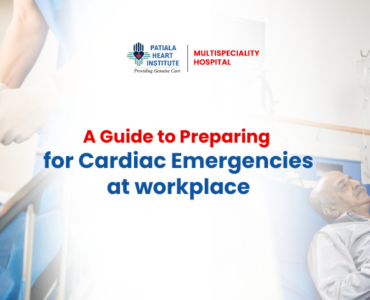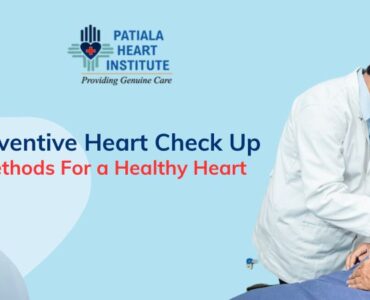Cardiovascular disease (CVD) remains the leading cause of mortality among women globally, claiming more lives than all forms of cancer combined. Historically, CVD has been perceived as primarily affecting men, but research indicates that women are equally at risk, if not more so, especially as they age. Moreover, cardiovascular conditions in women often manifest differently from those in men, leading to underdiagnosis and undertreatment.
Women are susceptible to various forms of cardiovascular disease, including coronary artery disease, heart failure, arrhythmias, and stroke. Risk factors for CVD in women encompass a combination of genetic predisposition, lifestyle factors, and socioeconomic determinants. While some risk factors are modifiable through lifestyle changes, others may require medical intervention and management.
Importance of Lifestyle Choices in Reducing Cardiovascular Risks:
Lifestyle choices play a pivotal role in mitigating cardiovascular risks and promoting heart health among women. Adopting a heart-healthy lifestyle can significantly reduce the likelihood of developing cardiovascular disease and its associated complications.
Healthy lifestyle choices encompass a range of factors, including maintaining a balanced diet, engaging in regular physical activity, managing stress effectively, avoiding tobacco and excessive alcohol consumption, prioritizing adequate sleep, and attending regular medical check-ups.
By embracing these lifestyle modifications, women can address various cardiovascular risk factors such as hypertension, obesity, dyslipidemia, diabetes, and sedentary behavior. Furthermore, lifestyle interventions have improved cardiovascular outcomes, enhanced quality of life, and prolonged life expectancy.
Diet and Nutrition
Importance of a Balanced Diet:
Maintaining a balanced diet is paramount for overall health and is especially crucial for reducing cardiovascular risks in women. A balanced diet provides essential nutrients, vitamins, and minerals for optimal bodily functions, including heart health.
Emphasizing Fruits, Vegetables, Whole Grains, and Lean Proteins:
Incorporating a variety of fruits, vegetables, whole grains, and lean proteins into the diet is essential for heart health. These foods are rich in fiber, antioxidants, vitamins, and minerals, which help lower cholesterol levels, reduce inflammation, and support healthy blood pressure.
Limiting Intake of Saturated Fats, Sugars, and Sodium:
To reduce cardiovascular risks, limiting the intake of saturated fats, sugars, and sodium is important. Saturated fats, commonly found in red meat, full-fat dairy products, and processed foods, can raise LDL cholesterol levels and increase the risk of heart disease.
Incorporating Heart-Healthy Foods Such as Fatty Fish, Nuts, and Olive Oil:
Fatty fish, such as salmon, mackerel, and trout, are rich in omega-3 fatty acids, which have anti-inflammatory properties and help reduce the risk of heart disease and stroke. Nuts, including almonds, walnuts, and pistachios, contain heart-healthy fats, fiber, and antioxidants, supporting heart health and lowering cholesterol levels. Olive oil, a staple of the Mediterranean diet, is high in monounsaturated fats and antioxidants and helps protect against heart disease and inflammation.
Physical Activity
Benefits of Regular Exercise for Cardiovascular Health:
Regular exercise is vital for maintaining cardiovascular health and reducing women’s heart disease risk. Physical activity helps strengthen the heart muscle, improves blood circulation, and enhances cardiovascular function. Exercise also helps lower blood pressure, reduce LDL (bad) cholesterol levels, and increase HDL (good) cholesterol levels, lowering the risk of heart attack, stroke, and other cardiovascular conditions.
Recommendations for Aerobics and Strength Training:
Women should incorporate aerobics and strength training into their fitness routines for optimal cardiovascular health. Aerobic exercises, such as brisk walking, jogging, swimming, cycling, and dancing, help maintain heart rate, improve endurance, and burn calories. Aim for at least 150 minutes of moderate-intensity aerobic exercises or 75 minutes of vigorous-intensity aerobic exercises per week, spread out over several days.
Incorporating Daily Physical Activity into Routine Tasks:
Incorporating daily physical activity into routine tasks is a practical way to increase overall activity levels and promote cardiovascular health. Simple lifestyle modifications, such as taking the stairs instead of the elevator, walking or biking to work, gardening, doing household chores, or taking short activity breaks throughout the day, can all contribute to achieving recommended activity levels.
Finding Enjoyable Activities to Stay Active:
Staying active is more enjoyable when engaging in enjoyable and fulfilling activities. Explore various physical activities and choose those that align with your interests, preferences, and fitness goals. Whether dancing, hiking, playing sports, practicing yoga, or participating in group fitness classes, finding activities you enjoy makes staying motivated and committed to regular exercise easier.
Stress Management
Understanding the Impact of Stress on Heart Health:
Stress can significantly impact heart health and increase the risk of cardiovascular disease. When the body experiences stress, it triggers a cascade of physiological responses, including releasing stress hormones like cortisol and adrenaline. These hormones can elevate heart rate, increase blood pressure, and constrict blood vessels, adding strain on the heart and circulatory system.
Techniques for Managing Stress, Such as Mindfulness, Meditation, and Deep Breathing Exercises:
- Effective stress management techniques can help mitigate stress’s negative impact on heart health and promote overall well-being. Mindfulness, meditation, and deep breathing exercises are evidence-based practices that can help individuals reduce stress levels and cultivate inner calmness and resilience.
- Mindfulness involves bringing focused attention to the present moment without judgment. Mindfulness techniques, such as mindful breathing, body scans, and mindful movement, can help individuals become more aware of their thoughts, emotions, and bodily sensations, enabling them to respond to stressors more skillfully.
- Meditation practices, such as guided meditation, loving-kindness, and mantra meditation, encourage relaxation, mental clarity, and emotional balance. Regular meditation practice can help individuals cultivate a sense of inner peace, reduce anxiety, and enhance overall resilience to stress.
- Deep breathing exercises, such as diaphragmatic breathing and progressive muscle relaxation, promote relaxation of the body and mind by activating the body’s parasympathetic nervous system, which induces a state of calmness and relaxation. Deep breathing exercises can be practiced anytime, anywhere, making them accessible tools for managing stress in daily life.
Importance of Adequate Sleep and Relaxation:
Sleep and relaxation are essential for stress management and heart health. Sleep deprivation and chronic sleep disturbances can disrupt hormonal balance, impair cognitive function, and increase susceptibility to stress-related health problems, including hypertension, obesity, and cardiovascular disease.
Prioritizing restorative sleep and relaxation activities, such as yoga, tai chi, progressive muscle relaxation, and leisure activities, can help individuals unwind, recharge, and restore balance to the body and mind. Creating a relaxing bedtime routine, a consistent sleep schedule and a comfortable sleep environment can promote better sleep quality and overall well-being.
Regular Health Check-ups
Importance of Regular Medical Check-ups and Screenings:
Regular medical check-ups and screenings are vital in maintaining optimal health and preventing the onset or progression of various health conditions, including cardiovascular disease. Health check-ups allow healthcare providers to assess overall health, identify risk factors, and detect potential health issues early when they are most treatable.
During routine check-ups, healthcare providers can conduct physical examinations, review medical history, assess lifestyle factors, and perform diagnostic tests and screenings based on individual risk factors and age-related guidelines. These screenings may include blood pressure measurements, cholesterol level assessments, blood glucose tests, cancer screenings, and vaccinations.
Monitoring Blood Pressure, Cholesterol Levels, and Blood Sugar:
Monitoring key health indicators such as blood pressure, cholesterol levels, and blood sugar is essential for assessing cardiovascular risk and promoting heart health. High blood pressure (hypertension), high cholesterol levels, and elevated blood sugar levels (diabetes) are significant risk factors for heart disease, stroke, and other cardiovascular conditions.
Regular monitoring allows healthcare providers to track changes in these parameters over time, identify abnormalities or trends that may indicate increased cardiovascular risk, and intervene early with appropriate lifestyle modifications or medical interventions. Individuals with hypertension, dyslipidemia, or diabetes may require regular monitoring and medication management to maintain optimal cardiovascular health.
Discussing Cardiovascular Risk Factors with Healthcare Providers:
Open and honest communication with healthcare providers is essential for addressing cardiovascular risk factors and optimizing heart health. During medical check-ups, individuals should discuss their family medical history, lifestyle habits, dietary patterns, physical activity levels, and any existing health concerns or symptoms with their healthcare providers.
Healthcare providers can provide personalized recommendations, guidance, and support to help individuals manage cardiovascular risk factors and make informed decisions about their health. This may involve discussing strategies for improving diet and nutrition, increasing physical activity, quitting smoking, managing stress, and adhering to prescribed medications or treatment plans.
Seeking Medical Attention for Any Concerning Symptoms:
It’s important to promptly seek medical attention for any concerning symptoms or changes in health status, especially those related to cardiovascular health. Symptoms such as chest pain or discomfort, shortness of breath, palpitations, dizziness, fainting, swelling in the legs or ankles, and unexplained fatigue may indicate underlying cardiovascular issues that require evaluation and treatment.
Ignoring or neglecting symptoms of heart disease or cardiovascular problems can lead to serious complications and adverse outcomes. Early detection, diagnosis, and intervention can significantly improve treatment outcomes and reduce the risk of complications associated with cardiovascular disease.
Experience Exceptional Cardiac Care with Patiala Heart
As we conclude, we encourage all women to prioritize their heart health and make informed lifestyle choices that support cardiovascular wellness. By embracing heart-healthy habits, seeking regular medical check-ups, and addressing cardiovascular risk factors, women can safeguard their hearts and enjoy healthier, more fulfilling lives. Remember, every small lifestyle change contributes to better heart health and well-being.
For exceptional cardiac care and expert guidance on heart health, consider Patiala Heart Institute and Multispeciality Hospital, home to the top-rated heart doctors in Patiala. Our dedicated team of the best cardiovascular health specialists in Patiala provides comprehensive cardiac evaluations, personalized treatment plans, and compassionate care to patients of all ages. Take the first step towards a healthier heart by scheduling a consultation with us today. Your heart deserves the best care possible.







